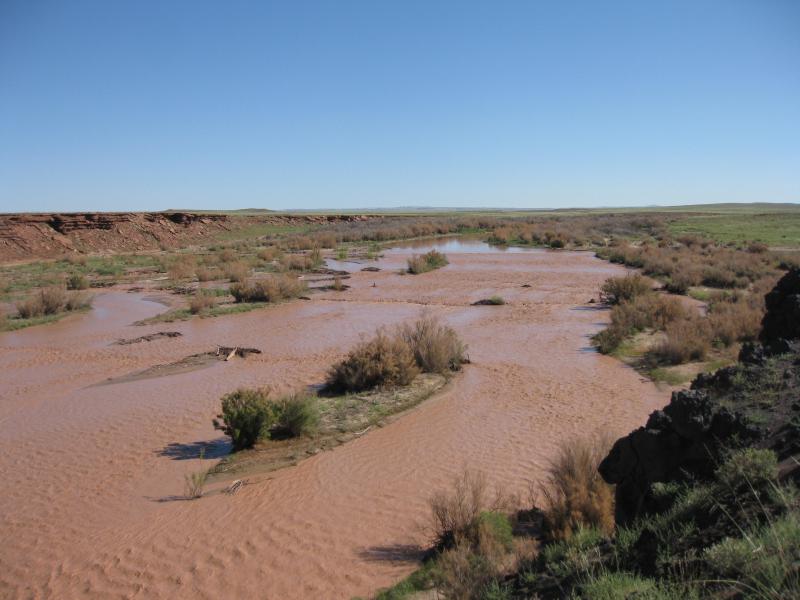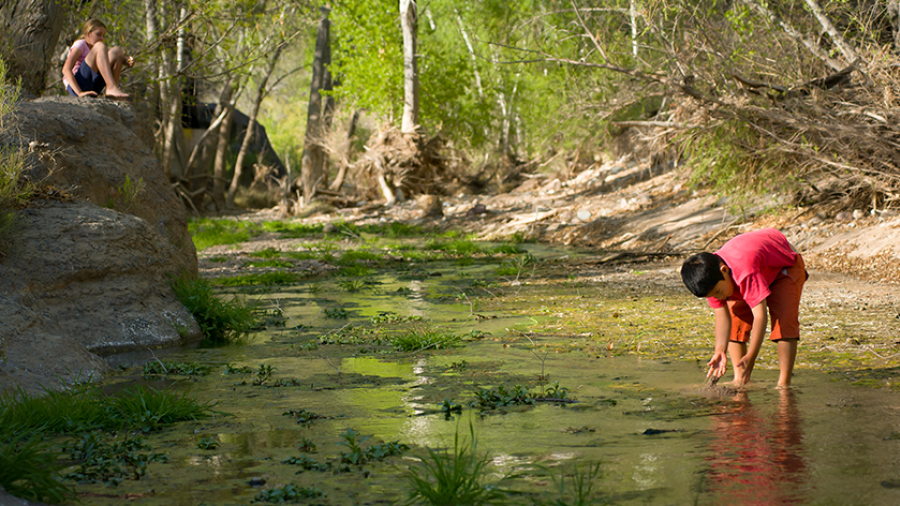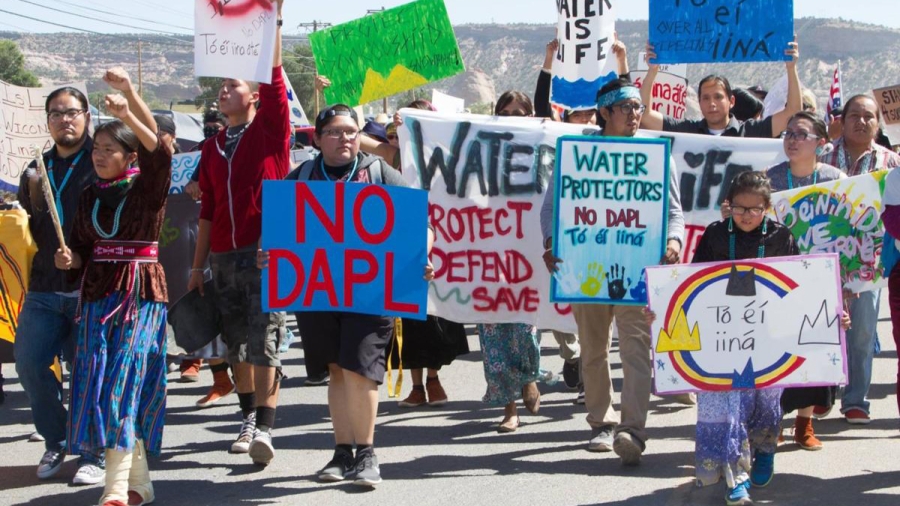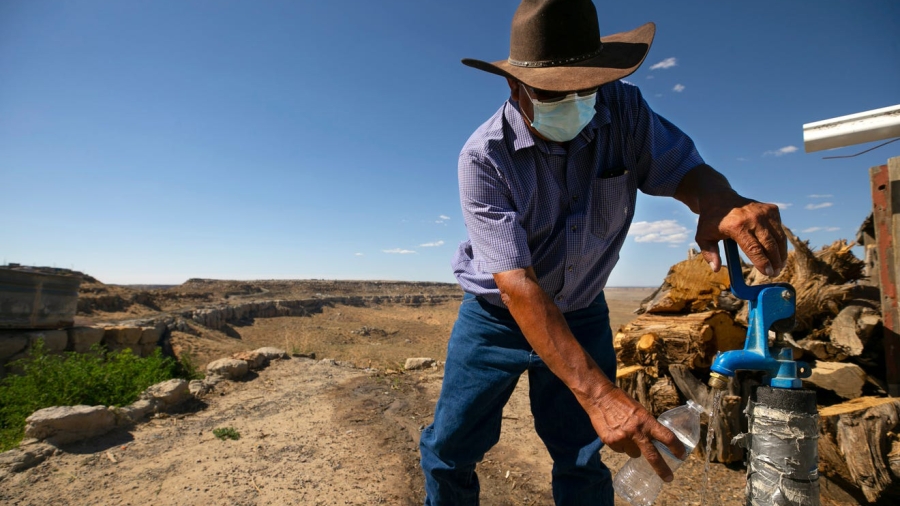
How can we improve adaptive capacity to water insecurity among American Indians in Arizona?
Felicia Mitchell, ASU School of Social Work
Background
Water is a finite resource, and it is anticipated that water insecurity will grow as water resources are stressed and become scarcer globally. Western science applications and definitions of water insecurity focus almost exclusively on the material value of water (quality, accessibility and quantity) for human uses and activities. While there is well‐established research on material aspects of water, there are fewer studies that focus on water's relational aspects, including the social, socio-political, cultural, and emotional-mental wellbeing dimensions of water that might disrupt, or result from, water insecurities.
People mainly affected by water insecurity in the U.S. are historically marginalized communities, including people living in rural areas, on tribal lands, and in lower-income areas that often overlap with BIPOC communities. Water insecurity adversely impacts many tribal communities in the Southwest and has presented new challenges during the COVID-19 pandemic. In the Colorado River Basin, a drying climate could mean water shortages for those in Arizona and other parts of the Southwest and Mexico, and with them, new or increasing challenges related to water insecurity stressors. This pilot study aims to address this gap to better understand non-material aspects of water that might be important to addressing water insecurities experienced by Indigenous peoples living in regions vulnerable to climatic extremes (i.e., Arizona).
Research questions
-
How do American Indians living in Arizona think about water and water insecurities in relation to their personal experiences and what is represented in public broadcast media?
-
What relational aspects of water — including social, socio-political, cultural and emotional dimensions — do they describe as protective factors or challenges related to water insecurity?
Methods and findings
Photo-elicitation is a research method in which participants use visual images to convey their experiences, thoughts, feelings or emotions about a particular topic. This study explores how American Indians living in Arizona experience and think about water and water insecurities as dispatched in public broadcast media. Using recent images from the media that depict water-related challenges in Arizona and are specific to American Indian communities, Mitchell used a modified version of photo-elicitation to achieve several goals.
- Collect narratives about water and water insecurity from an Indigenous lens
- Advance conceptualization and empirical evidence for relational elements of water and water insecurity as experienced by American Indians in Arizona
- Advance innovative methodologies in the research process during the pandemic, while adhering to community social distancing orders
- Advance western sciences to enhance the water discourse and include a broader range of Indigenous perspectives that honor American Indian knowledge, thoughts, experiences and expressions about water.
In lieu of an interview, which is customary for many photo-elicitation projects, participants were asked to share their reflections about photographs depicting water-related issues in Arizona, including water protectors and protecting sacred sites, water contamination on tribal lands, drought and water scarcity, water access or tribal communities without running water, and representation in water policy and governance. Study participants also had an opportunity to upload their own photo with an accompanying narrative that represents what water means to them.
Impact
Mitchell's study addresses research gaps to better understand the relational aspects of water and water insecurities that may provide important insights into the protective factors or adaptive capacity we have to manage the adverse impacts of water insecurity. Ideally, this research will be part of greater efforts to harness the power of protective factors to reduce the harm to emotional-mental wellbeing caused by living in water insecure environments, particularly as we know water insecurity will most likely increase over time due to climate change and other events.
Felicia Mitchell
Assistant Professor
ASU School of Social Work
Academic Fellow, 2021
Felicia M. Mitchell joined the School of Social Work at Arizona State University in August 2016. Mitchell is committed to social justice for all oppressed and marginalized peoples and advocates for the advancement of environmental and health equity in communities of color. Her primary research interests focus on social determinants of health (which includes environmental determinants) and their impact on Indigenous health and well-being. In support of Social Work's Grand Challenge to Create Social Responses to a Changing Environment (http://envchange.org/), Mitchell's work seeks to promote public and policy responsiveness to the social and anthropological dimensions of environmental change and environmental racism. Mitchell uses Photovoice, a community-based participatory research method, to partner with communities and organizations around group-identified health and ecological concerns.
Mitchell's secondary line of scholarship focuses on advancing social work education through critical reflection and engagement that seeks to dismantle anti-Black sentiments and settler-colonial standards in academia. Using a critical lens, she examines teaching and curriculum standards to increase accurate representations of historically underrepresented populations in the classroom and advocates for the eradication of oppressive social work education and research practices.
Mitchell's article, “Engaging in Indigenous CBPR within Academia: A Critical Narrative,” was selected as the winner of the 2018 Affilia Award for Distinguished Feminist Scholarship and Praxis in Social Work.



